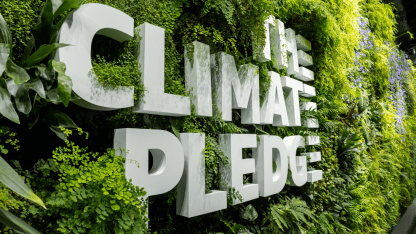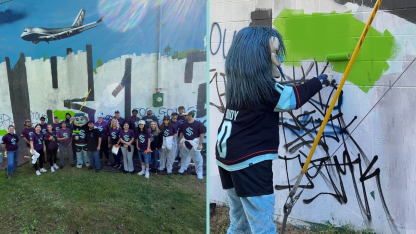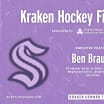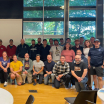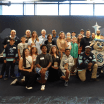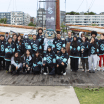As spring fully blooms, the April celebration of Green Month is just the re-start of how we can heal the environment all year long. It begins with each of us doing what we can, no what matter what month it is and no matter how small or inconsequential it might seem.
“There's this preconceived notion that one individual can't make change, one individual can't help fight the climate crisis,” said Brianna Treat, director of sustainability for the Kraken and Climate Pledge Arena. “That’s untrue because if we all do, let's say, something to conserve water, something to reduce carbon, if we all do that together, that's a potential eight billion people doing something collective that makes a far bigger impact than if we were to do it alone.”
While the Kraken fan base isn’t in the billions, there is distinct power in the team’s numbers attending games and following the team through its app, website and social media accounts. The Kraken, One Roof Foundation and Climate Pledge have been active and effective during Green Month 2024 in addressing environmental health and sustainability on several fronts, including consumer tips, helping nonprofits access funding for environmental justice initiatives, joining the South Park community in a neighborhood clean-up and leading the way in zero-waste for companies and large facilities.
Sustainability: Keep On Keeping On
As part of the game presentation and social media connections with fans, the Kraken created a series of Green Month graphics, one for each week in April, that helps all of us determine those “small acts” that lead to a larger impact. The graphics covered ways to reduce energy use, conserve water, reduce carbon and recycle/compost more waste.
Some examples: To reduce electric use, launder in cold water when feasible. Climate Pledge Arena collects rainwater (more than 250,000 gallons in three seasons) to make the greenest ice in the NHL. Fans attending home games have several public transit choices to get to the game and leave their cars at home or even a discount parking lot at Westlake Center (taking the Monorail from there).
As for optimizing the reuse of waste, Treat, and colleagues were attending to fans’ disposal of the debris from food and beverage concessions both in real time on concourses during the game and then post-game, sorting waste items into recyclable categories. Treat said each event generates eight to 10 tons of waste during each of the 150 events (sports, concerts, more) each year at the arena, with more than 90 percent being available for re-purposing rather than headed to landfill (see “Zeroing on Zero Waste” below).
“One of my favorite fan tips using the free public transit subsidy [embedded in every digital ticket] to get to our venue,” said Treat. “I do all of our carbon accounting, and the more people that take public transit, the less carbon emissions are associated with fan travel to our events. It’s most important for fans to understand there are actual ways that you can reduce your effect on the environment while having fun at a concert or sports event.”
As part of championing sustainability and generating awareness about what every fan-citizen can do, the Kraken celebrated Green Night, presented by Boeing, during their home game against the Arizona Coyotes on April 9.


